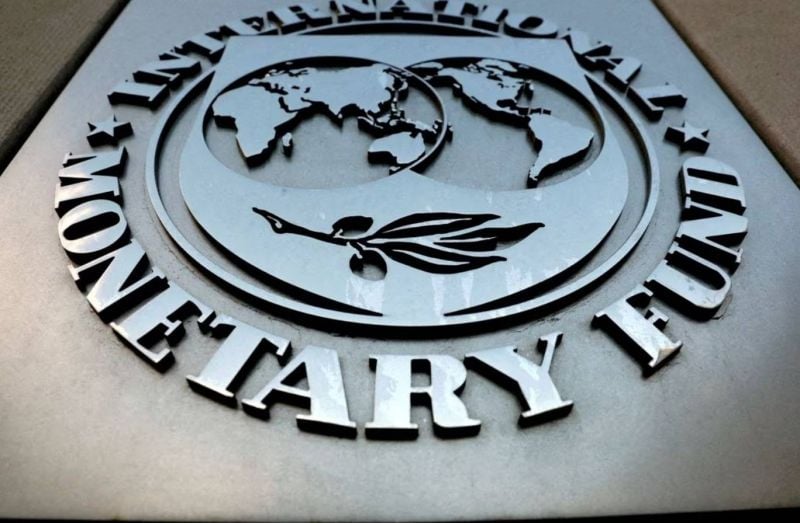
The International Monetary Fund (IMF) logo in Washington, United States, September 4, 2018. (Credit: REUTERS/Yuri Gripas/File Photo)
BEIRUT—A new report from Lebanese think tank The Policy Initiative and US-based think tank Century International argues that Lebanon is “on track to get nothing” from its negotiations with the International Monetary Fund (IMF) to receive $3 billion in financing.
“Ruling elites have effectively sabotaged the IMF negotiating process,” the report alleges. It argues that government inaction demonstrates a preference for their own vested interests — which would be threatened by the reform measures required by the IMF in exchange for financing — over the potential financial infusion offered by the IMF.
“The IMF is negotiating with an official Lebanese team that does not represent the country’s political class,” according to the report. “That broader political class is not invested in the official Lebanese team’s recovery plan or motivated to carry out reforms agreed with the IMF—in fact, it has conspired against them.”
Lebanon’s negotiating team is headed by caretaker deputy Prime Minister and IMF veteran Saade Chami and includes caretaker Finance Minister Youssef Khalil, caretaker Economy Minister Amin Salam, and central bank governor Riad Salameh.
Salameh, whose term is set to expire on July 31, is the subject of multiple corruption investigations and two European arrest warrants. He has denied all wrongdoing.
Despite the endorsement by Lebanon’s prime minister, president, and speaker of Parliament of a staff level agreement with the IMF in May 2022—which included roughly ten prior actions required of the Lebanese government before a final agreement can be reached—the report authors claim there is little political buy-in for these prior actions. This is demonstrated by the inability of reform laws to pass through the divided Parliament without amendments that, in the eyes of the IMF, render them unacceptable.
Another main factor in the stalled IMF talks, the authors argue, is “a political discourse filled with bad-faith anti-IMF narratives and general misinformation.” Central to that discourse is an insistence that the government’s IMF-endorsed recovery plan will wipe out the savings of ordinary depositors, the report says.
Per the government recovery plan approved by the cabinet in its last session before entering caretaker status in May 2022, deposits smaller than $100,000—the vast majority of deposits in the banking system—would be fully protected. Larger deposits would be subject to haircuts and bail-ins to varying degrees.
Another narrative that has been growing among the country’s decision makers, they argue, is that Lebanon’s economy has stabilized on its own without the need for IMF intervention.
Some data points support this assertion, such as a rebound in imports to pre-crisis levels, a slowdown in GDP contraction, and an increase in food and beverage business activity. Despite this, last month the World Bank cautioned that: “Behind a façade of normalization of crisis conditions, the Lebanese economy remains in precipitous decline, markedly distant from a stabilization path, let alone a recovery path.”
In other words, as widespread poverty, runaway inflation, and state collapse become ever-more-deeply entrenched, the report’s authors argue that the lack of government response strongly suggests the existence of a conscious decision — which they refer to as a “shadow plan” — to bide time and allow for what report co-author Sam Heller called “a super-regressive economic correction that is stabilizing the Lebanese economy at a new, low level.”
“Experts believe this shadow plan could technically work—in the sense that it would balance banks’ ledgers and stabilize the economy at a new, very low level—but only at a terrible human cost,” the report states.